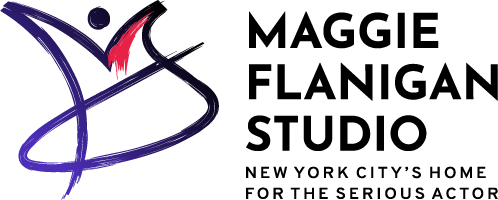Actors must develop effective audition techniques if they are to be successful at finding work as an actor. Even the most well known actors are called in to “read” for roles. Auditions are a fact of life for actors and and learning how to audition can be as critical as learning the craft of acting. The art of auditioning is a distinct skill but, it is a skill that a student of the Miesner technique masters more readily. Every aspiring or working actor must accept that an effective audition technique will help them with through the never ending process of “acting to act.” which is what auditioning really is.
Many actors make the mistake of focusing too much on the role and how they will play the role, how they will wow the auditors and how jazzed they will be if they get the part or disheartened if they don’t. Wise, more experienced actors, especially those that study Meisner acting technique, will focus on the auditors as well. This is an effective auditioning technique for many important reasons. First of all, aside from yourself (and a waiting room full of other auditioning actors) the people involved are likely to be casting directors, directors, producers and a camera person (if it is being taped). In addition to these key players commercial auditions may have representatives from the agency or advertiser, musicals will likely involve musical directors and choreographers and in many instances you may even see a stage director.
Forget trying to discover who’s who or what their role is. Focus instead of being open, respectful to everyone. More importantly use your Meisner technique to good use and put yourself into their shoes. Remember that there is a whole lot riding on the choices they make. Before you get miffed that they are eating a sandwich or playing with their cell phones as you read, remember that they have probably been there many, many more hours seeing and hearing dozens of actors run the same lines over and over again. They have likely heard many less than stellar performances and as such have low expectations. Allowing yourself to be angry or frustrated will only block out the emotional channels that you will need to have wide open to access the emotional life of the character you are reading for. Better yet, get a quick read on where they are emotionally. Are they bored, discouraged, nervous? Tune into that and use it in the reading and you will draw them in, and bring them to a place where they are interacting with you rather than passively watching another flat performance.
Jaded behavior on the part of those conducting the auditions is an opportunity for the Meisner trained actor, not a hindrance. When you see auditors in this condition one aspect of your auditioning technique should be to see this as your chance to wake up the room and remind everyone why they are there. They are there to find a true artist, that one talented individual that will make their production a wildly successful hit. It is your job to guide them into seeing the words on the page as so much more than mere words. Part of your auditioning technique must be to remind them that what is happening in the silence between lines is as important as the dialogue. Remind them that the dialogue is the tip of the iceberg in terms of the complexity of the character. Remind them that acting is an art that elevates the most human aspects of the story and reminds us all of who we are. Your auditioning technique should be to remind them of all of this in a few short pages.
That is a very tall order but, if you aspire to be a successful actor that will be your job every rehearsal, every performance, every time onstage. Why not start with the audition? The next practical consideration is to expect the unexpected. There are as many scenarios as their are auditions. While some commonalities occur each production is extremely unique and each creative approaches their audition expectations differently. Whatever you are guided to do, do it. Directors and producers have a long list of challenges ahead of them as far as getting a production up and running. Adding a “difficult to work with” actor is probably NOT something they want to add to the list. Be open to direction, easygoing with the process and vulnerable in your performances.
The most resilient actors who have put in year after year of auditioning will tell you that they have simply accepted auditioning as part of the work. Part of their auditioning technique is to see all auditions as an opportunity, albeit a brief one, to act. They treat it as a part, not a chance. In fact, they treat it as the role of a lifetime each and every time.
The Maggie Flanigan Studio offers personal coaching to help you prepare for your next audition. To learn more about how the studio can help you land your next part, call the studio and speak with Katie. Call 917-789-9077..
Don’t forget to vote for Maggie Flanigan as the Favorite Audition Technique Teacher in New York City.
Click here to take the survey: Backstage 2011 Reader’s Poll.



